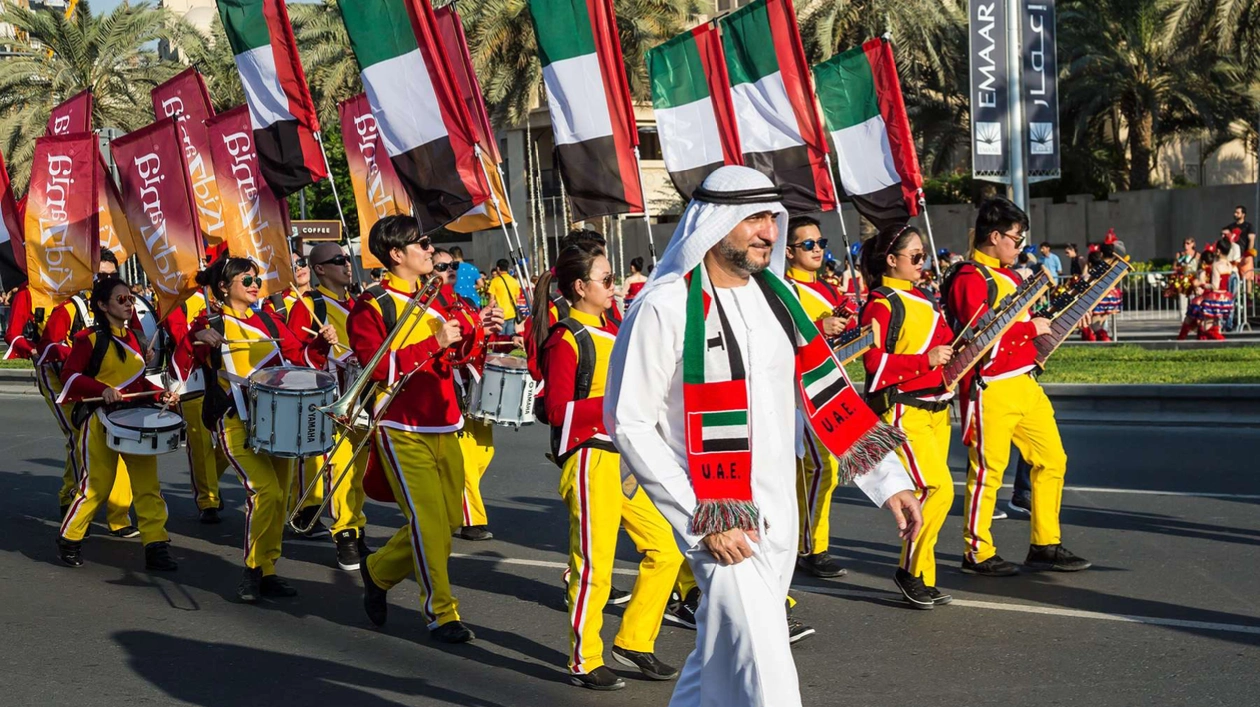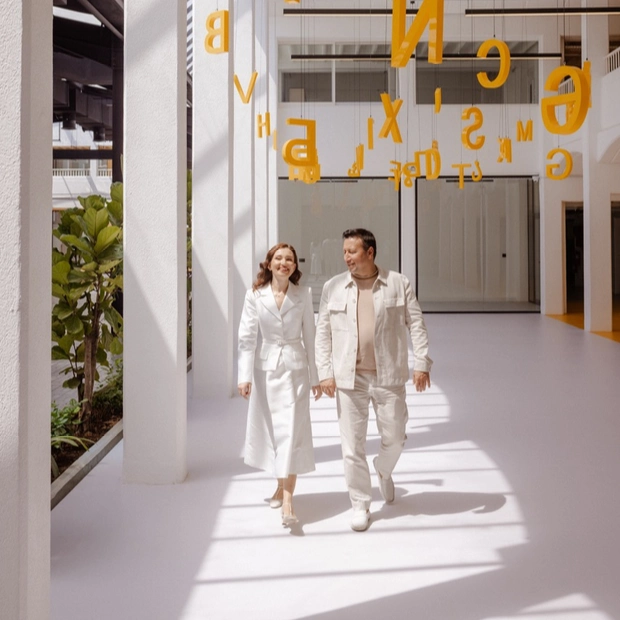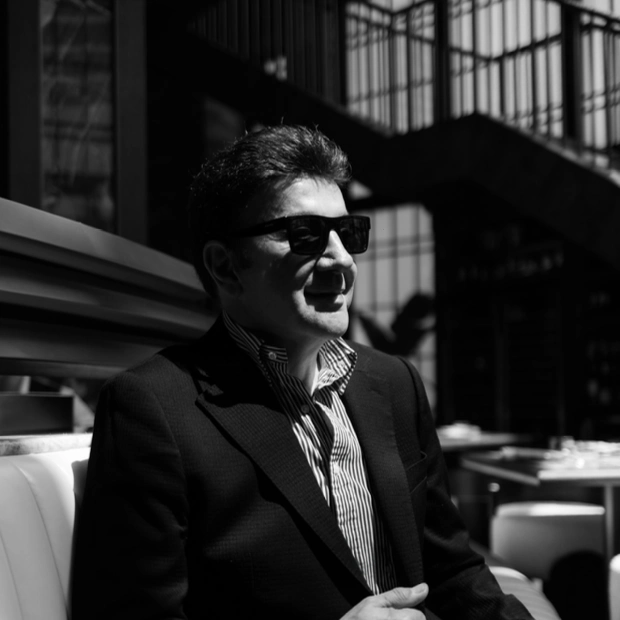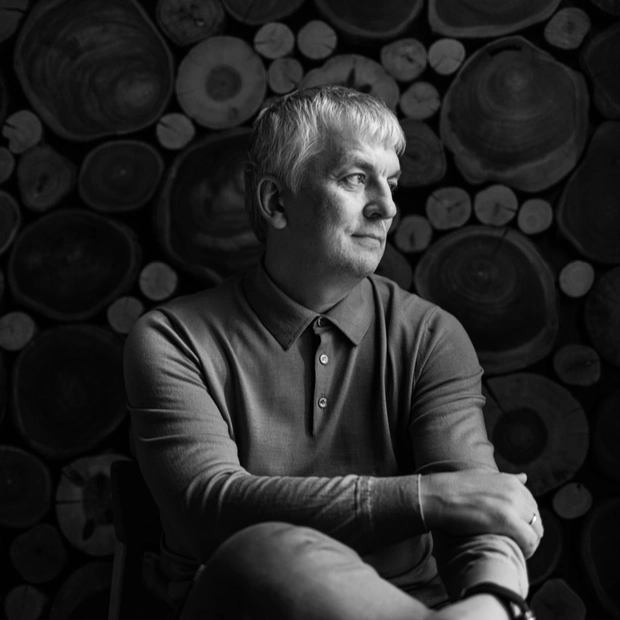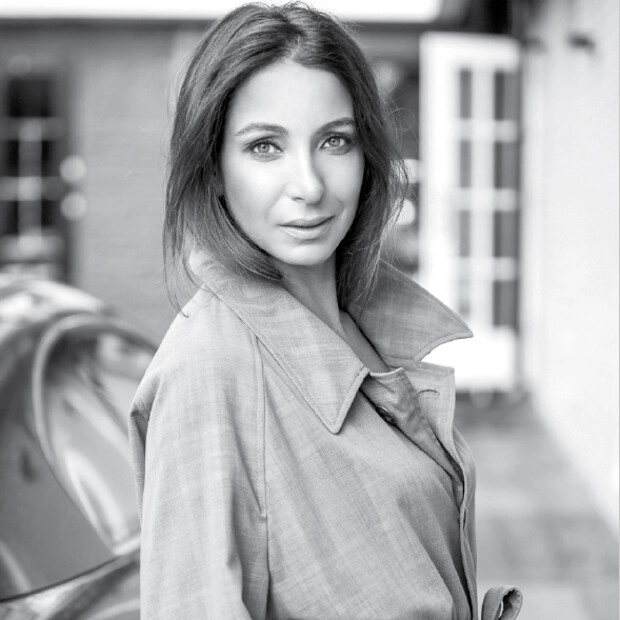Public and national holidays 2024 in UAE
The United Arab Emirates, a nation blending cultural heritage and modern advancements, presents a mosaic of experiences for residents and visitors alike. Understanding the country's diverse holiday calendar is crucial not only for navigating social interactions and planning personal activities but also for appreciating the cultural nuances and values that shape Emirati society. While the Gregorian calendar serves as the foundation for official timekeeping, the UAE also recognizes and observes key Islamic holidays, which follow the lunar calendar and experience slight annual variations in their dates.
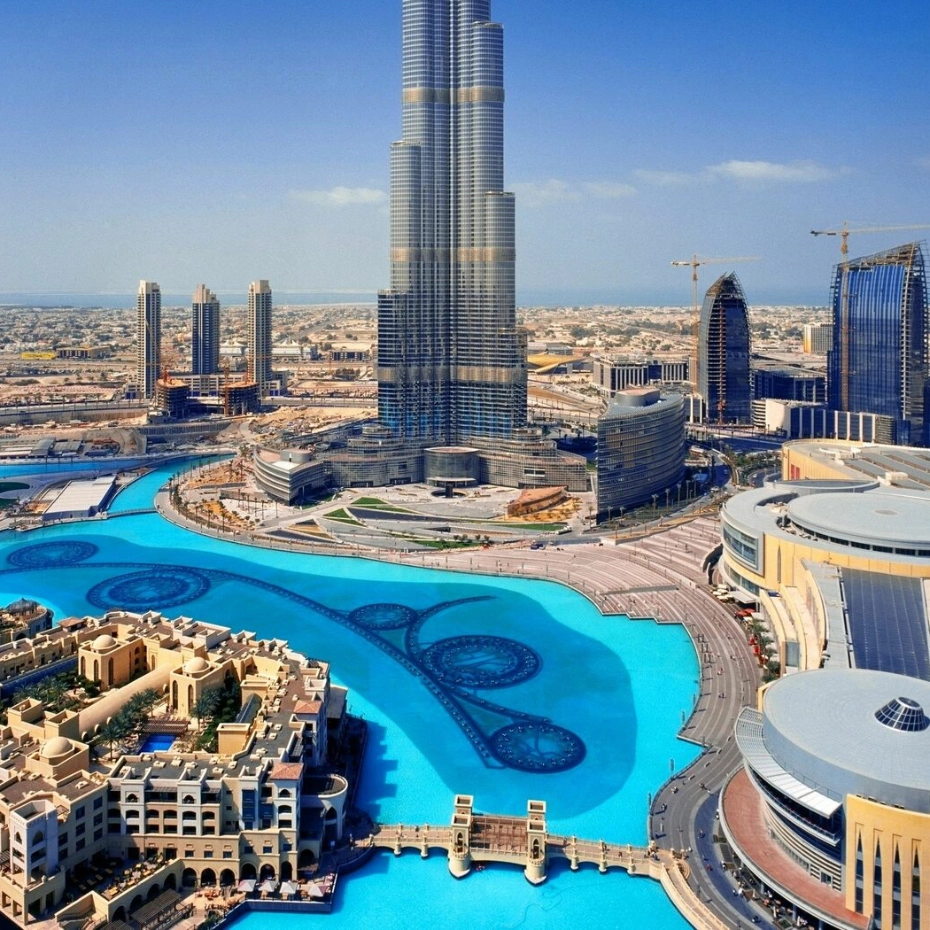
Time Zones in the UAE:
It's important to note that the UAE spans across multiple time zones. Most of the country observes Gulf Standard Time (GST), which is 4 hours ahead of Coordinated Universal Time (UTC+4). However, some areas like Sharjah and Dubai follow UAE Standard Time, which is an hour behind GST (UTC+3). Staying mindful of these time zone differences is important when coordinating events or travel within the UAE.
Let's embark on a comprehensive exploration of the upcoming Eid holidays and other significant dates to be aware of in 2024, delving deeper into the customs, traditions, and insights that make these occasions special:
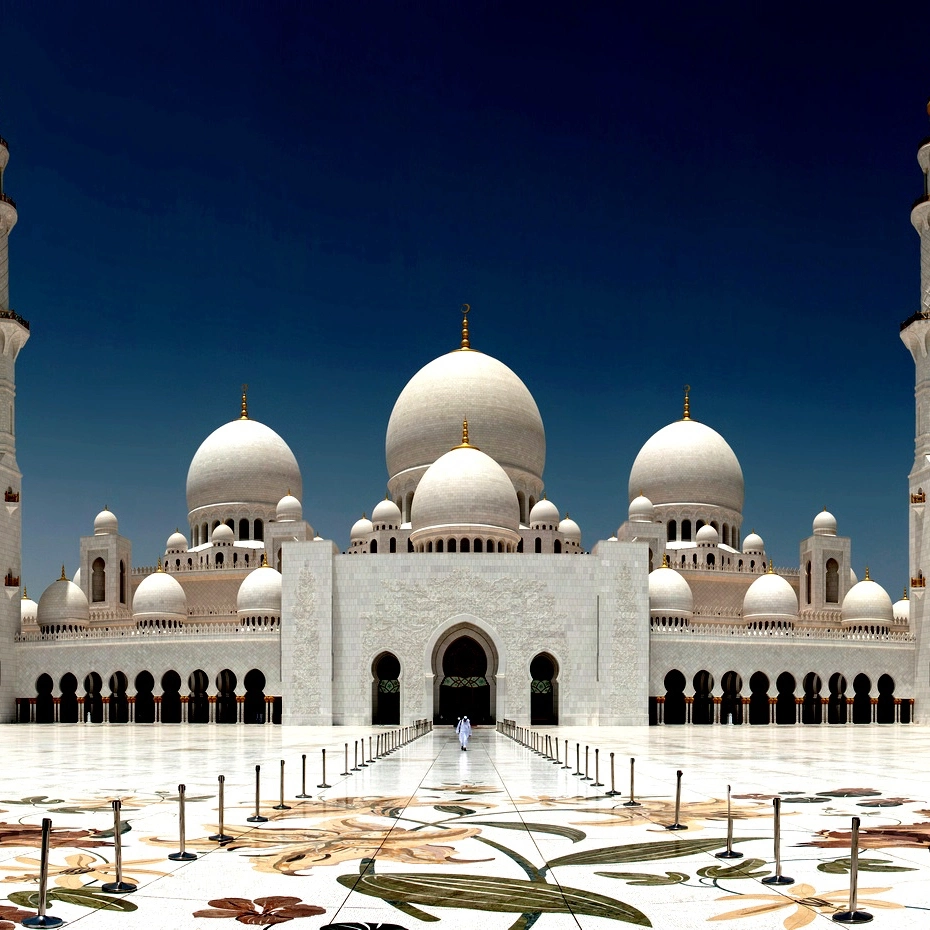
Eid al-Fitr
A Celebration of Gratitude and Renewal (10 April 2024, approx. 30-31 March 2025)
Eid al-Fitr, translating to the "Festival of Breaking the Fast," marks the joyous culmination of Ramadan, the ninth month of the Islamic calendar dedicated to fasting, prayer, and spiritual reflection. Typically spanning three days, Eid al-Fitr encompasses a series of cherished traditions and customs that bring communities together in celebration:
Eid Prayers
The day commences with special congregational prayers, often held in mosques or designated open-air spaces. Muslims, dressed in their finest attire, gather to offer prayers of gratitude, marking the successful completion of Ramadan and seeking blessings for the future. The Eid prayer is a time for reflection on the spiritual growth achieved during Ramadan and for strengthening bonds within the community.
Family Gatherings and Festive Feasts
Homes transform into active hubs as families and friends unite to share elaborate meals, exchange gifts, and revel in the spirit of togetherness. Traditional dishes and sweets hold a prominent place on Eid tables, symbolizing the end of the fasting period and the sweetness of shared moments. The exchange of gifts, particularly for children, adds to the joy and excitement of the occasion.
Acts of Charity and Zakat al-Fitr
The spirit of giving permeates Eid al-Fitr, with many Muslims fulfilling the Zakat al-Fitr obligation, a charitable donation offered to those in need before the Eid prayers. This practice emphasizes compassion, social responsibility, and the importance of supporting the less fortunate, ensuring that everyone can partake in the joy of Eid.
Cultural Festivities and Entertainment: The nation transforms into a hub of celebrations, with streets and shopping malls adorned in colorful decorations, and a plethora of special events and entertainment programs organized for people of all ages. Traditional music and dance performances, children's activities, amusement park festivities, and dazzling fireworks displays contribute to the festive atmosphere, creating lasting memories for families and visitors alike.
Insights: Eid al-Fitr provides a window into the core values of gratitude, community, and generosity that underpin Emirati society. It's a time for strengthening bonds with loved ones, fostering compassion for those in need, and celebrating the blessings of life after a month of spiritual reflection and self-improvement. The emphasis on family, community, and giving back reflects the deeply rooted values of Emirati culture.
Eid al-Adha
A Testament to Faith and Sacrifice (16 – 18 June 2024, approx. 6 – 8 June 2025)
Eid al-Adha, known as the "Festival of Sacrifice," commemorates Prophet Ibrahim's unwavering faith and his willingness to sacrifice his son as an act of obedience to God. This significant religious holiday, usually lasting four days, encompasses a series of symbolic rituals and meaningful traditions that resonate deeply with Muslims worldwide:
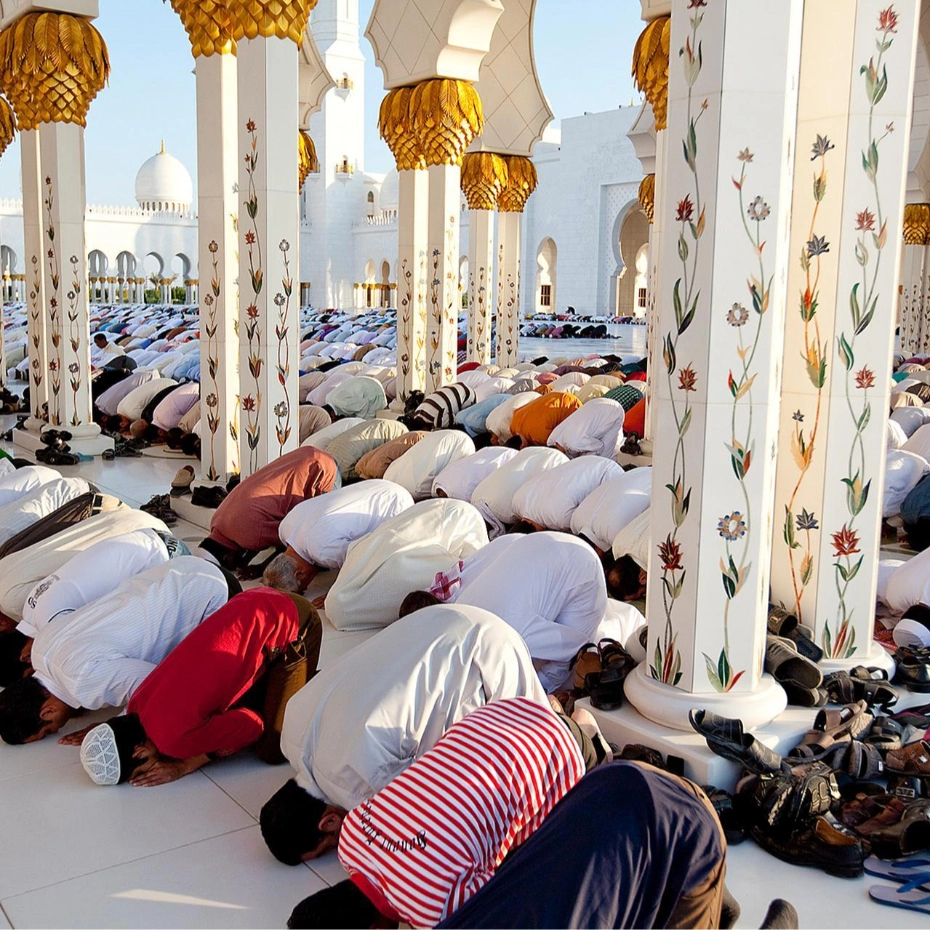
Hajj Pilgrimage
For many Muslims around the world, Eid al-Adha coincides with the Hajj pilgrimage to Mecca, one of the five pillars of Islam. Millions of pilgrims embark on this sacred journey, performing rituals that symbolize unity, submission to God, and spiritual renewal. The Hajj serves as a powerful reminder of the universal brotherhood of Muslims and their shared commitment to faith, transcending borders and cultural differences.
The Act of Sacrifice
Echoing Prophet Ibrahim's devotion, Muslims who have the financial means sacrifice an animal, typically a sheep or goat, as a symbolic gesture of sacrifice and gratitude. The meat is then divided into three portions: one for the family, one for friends and relatives, and one for the less fortunate, emphasizing the importance of sharing blessings and caring for those in need. This act of sacrifice symbolizes selflessness and devotion to God.
Spiritual Reflection and Family Bonds
Eid al-Adha is a time for introspection and reflection on the values of sacrifice, obedience, and unwavering trust in God. Families come together to share meals, exchange gifts, and strengthen their bonds, fostering a sense of love, unity, and gratitude. The act of sacrifice serves as a reminder of the importance of prioritizing faith and family.
Cultural Celebrations and Charity Initiatives
Similar to Eid al-Fitr, Eid al-Adha witnesses a surge in cultural festivities and charitable activities. Communities organize celebratory events, often with a focus on family-friendly activities and cultural performances. Individuals and organizations engage in initiatives to support those in need, extending the spirit of giving and compassion beyond immediate circles. This emphasis on charity reflects the core Islamic principles of social responsibility and caring for the less fortunate.
Insights: Eid al-Adha serves as a powerful reminder of the profound values of faith, sacrifice, and compassion that lie at the heart of Islam. It underscores the importance of sharing with others, especially those less fortunate, and promotes a sense of community and social responsibility that extends far beyond the holiday period. The act of sacrifice, the emphasis on family bonds, and the spirit of giving all contribute to the rich tapestry of traditions that define Eid al-Adha.
Additional Holidays and Planning Resources
In addition to the Eid celebrations, the UAE also observes other significant holidays and occasions throughout the year. For those interested in planning or tracking important dates, there are various resources available, such as:
Calendars with date calculators
Business date exclusions
Tools to exclude holidays
Staying informed about the UAE's public holidays and cultural events can help residents, visitors, and business professionals better navigate the country's vibrant landscape. Please check for the latest news regarding any updates or changes to the holiday schedule.
